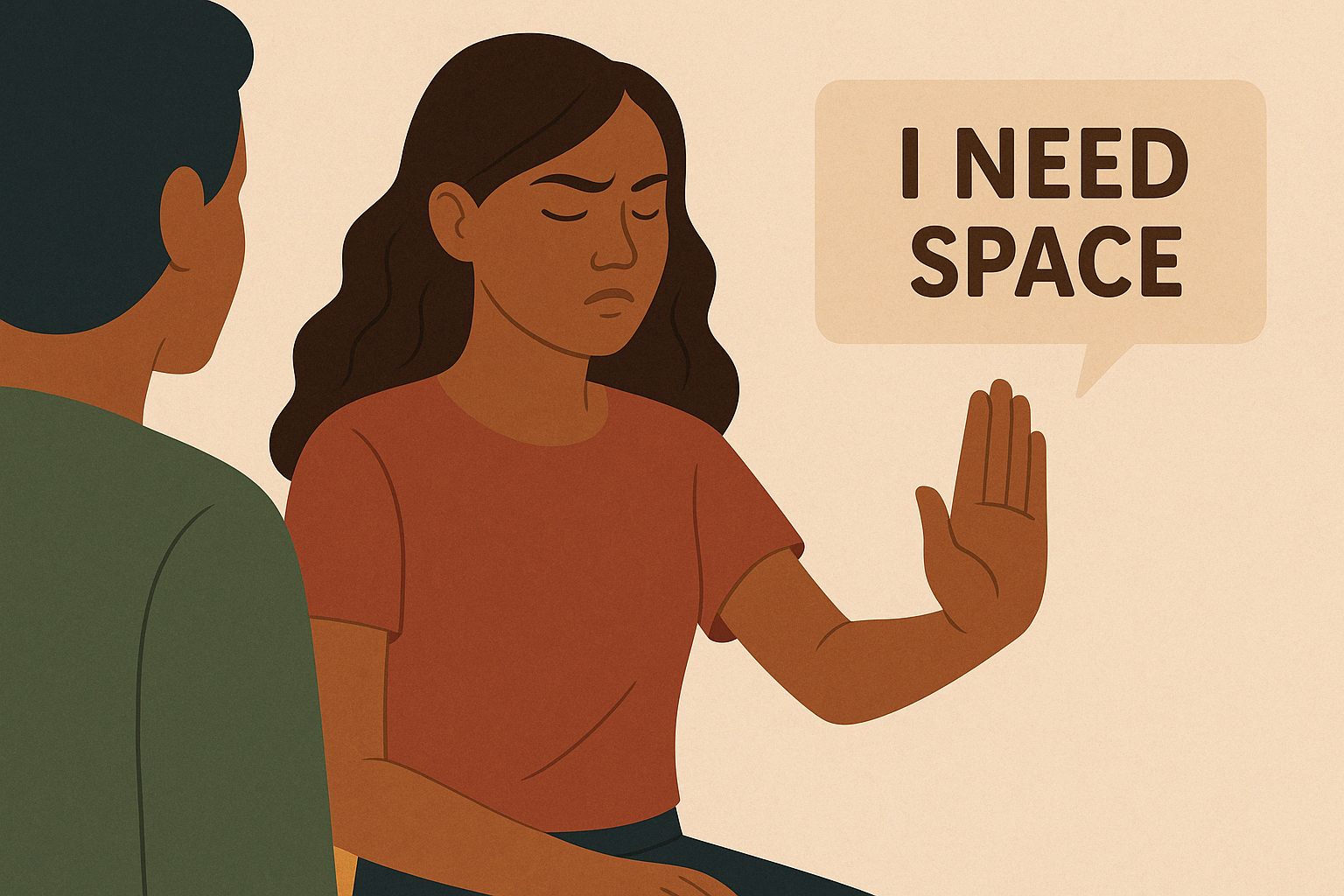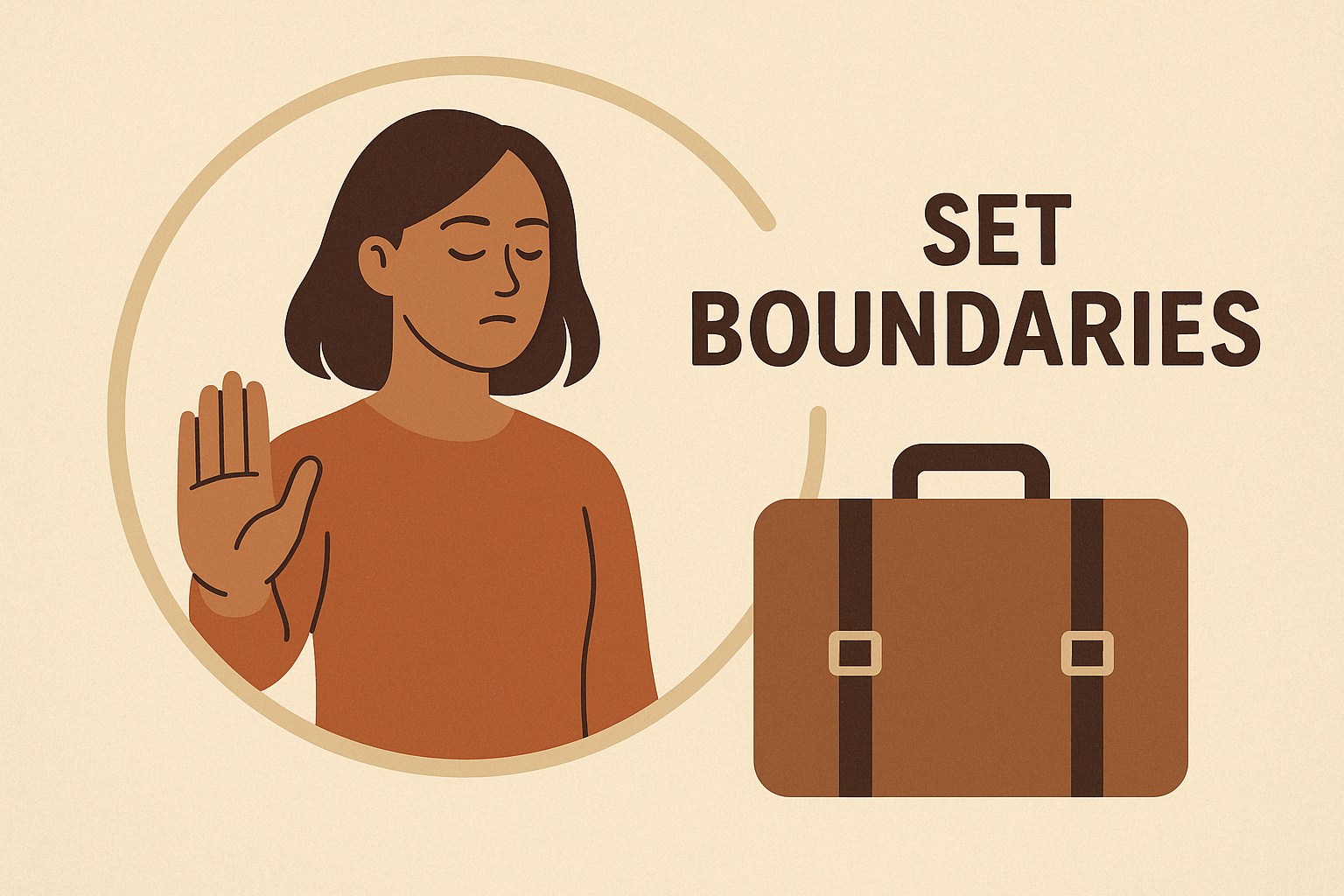Creating Healthy Boundaries After Betrayal: A Key Aspect of Self-Care
Reclaiming Your Power: The Importance of Setting Boundaries After Betrayal
When we experience betrayal, it often leads to a violation of trust and personal space. Whether it’s a relationship, friendship, or workplace, betrayal leaves us feeling vulnerable, exposed, and sometimes powerless. One of the most crucial steps in healing after betrayal is learning to set and enforce healthy boundaries.
Boundaries are an essential part of self-care, particularly after an emotional wound like betrayal. They act as the emotional and psychological safeguards we need to protect our well-being and avoid further harm. In this post, we’ll explore why boundaries are essential and how you can begin the journey of creating and enforcing them in your life.
⸻
Why Boundaries Matter After Betrayal
When we’re betrayed, we’re often left feeling violated—not just emotionally, but also mentally and physically. Betrayal crosses personal lines, leaving us questioning our self-worth and trust in others. During such times, creating boundaries is an act of reclaiming control and ensuring that we protect ourselves moving forward.
Healthy boundaries help to:
• Prevent further emotional harm: By setting limits, we create space between ourselves and situations or people that continue to cause us pain.
• Rebuild trust in ourselves: Learning to say “no” or “yes” when appropriate allows us to trust our judgment and intuition, helping us make better decisions in future relationships.
• Maintain emotional energy: Boundaries allow us to protect our mental and emotional well-being by ensuring that we don’t give more of ourselves than we can handle.
⸻
Signs You Need Stronger Boundaries
After betrayal, it’s common to feel confused about where your limits lie, especially if you’ve allowed someone to overstep them in the past. However, recognizing the need for boundaries is the first step toward healing. Here are some signs that it’s time to create clearer boundaries:
• You feel drained after interactions with certain people: If someone continuously takes more from you than they give, it’s a sign that you need to establish boundaries.
• You find yourself constantly apologizing: If you’re often apologizing for your needs, feelings, or desires, you may not have clear boundaries in place.
• You have trouble saying “no”: If you’re afraid to say “no” because you fear conflict or disappointing others, it’s essential to practice setting limits.
• You feel overwhelmed or unable to focus on yourself: If you constantly put others’ needs before your own, it can lead to burnout and resentment. Learning to say “no” helps prioritize your own health and happiness.
⸻
How to Set Healthy Boundaries
Setting boundaries isn’t always easy, especially after betrayal. It requires courage and practice. Here are some actionable steps you can take to begin setting and enforcing healthy boundaries:
1. Identify Your Needs and Priorities
• Take time to reflect on what you truly need to feel safe and emotionally balanced. This might involve spending time alone, taking breaks from people who drain you, or setting limits on the kind of behavior you’ll tolerate.
2. Learn to Say “No”
• Saying “no” can be incredibly difficult, especially if you’re used to people-pleasing. However, it’s crucial for protecting your emotional energy. Practice saying “no” in small ways—whether it’s declining an invitation or politely rejecting a request. Over time, this will become easier and more natural.
3. Communicate Clearly and Directly
• Healthy boundaries require open and honest communication. When setting boundaries, be clear about what you need and why. For example, you might say, “I need space to process my feelings right now,” or “I’m not comfortable with this behavior and would like it to stop.” Avoid apologizing or over-explaining your boundaries.
4. Establish Consequences
• Boundaries aren’t just about saying “no”; they also involve setting clear consequences if those boundaries are violated. For example, if someone disrespects your boundary, you can calmly explain that the relationship needs to take a break or that you will no longer engage in certain activities with them.
5. Practice Self-Care
• Once your boundaries are in place, focus on activities that nurture and replenish you. Engage in activities that bring you peace, like journaling, spending time in nature, or practicing mindfulness. Prioritize your well-being by maintaining these boundaries and consistently practicing self-care.
How Boundaries Empower You
Establishing healthy boundaries after betrayal is a powerful way to protect your emotional health and empower yourself. It helps you take charge of your life, make choices that prioritize your mental well-being, and ultimately rebuild trust in yourself.
Remember, boundaries aren’t walls—they’re protective measures that allow you to engage with the world in a healthy and balanced way. By protecting your energy and emotional space, you create a foundation for healing and create room for healthier, more fulfilling relationships in the future.
Take Action Today
Start small. Identify one boundary you need to set—whether it’s limiting time with someone who drains you or taking time each day to nurture yourself—and take steps to reinforce it. Healthy boundaries are an ongoing practice, but they are essential for reclaiming your peace and happiness after betrayal.







